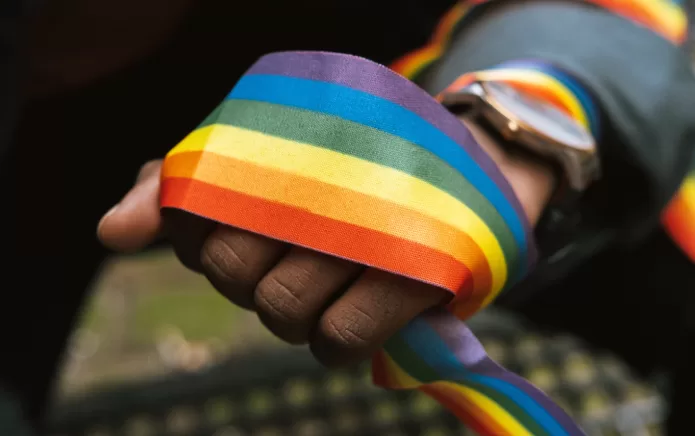LGBTQIA+ rights activists, who launched the appeal, are also urging the international community to intensify pressure on the Ugandan government to repeal the law by imposing more sanctions, but emphasised that such penalties should be targeted.
“We are not calling for blanket sanctions on Uganda. They should not affect vulnerable Ugandans,” said Frank Mugisha, executive director of campaign group Sexual Minorities Uganda. “The sanctions should be targeted against those who are pushing the Anti-Homosexuality Act.”
Uganda received more than $650 million from the U.S. and $175 million from the European Union in development aid in 2020 and LGBTQIA+ rights campaigners say that should not be suspended.
Here’s what you need to know:
What sanctions have been imposed on Uganda so far over the anti-LGBTQIA+ law?
Calling the Anti-Homosexuality Act “a tragic violation of universal human rights”, the United States imposed travel restrictions on some Ugandan officials last year and suspended the country’s access to a duty-free trade programme.
Washington has also paused some $15 million to support efforts to combat biological threats such as infectious disease outbreaks in Uganda and redirected $5 million from the government to local charities to provide services to LGBTQIA+ people living with HIV/AIDS.
The World Bank has halted all new loans to Uganda, saying the anti-LGBTQIA+ law contradicts its values. The bank had $5.2 billion of projects in the east African country at the end of 2022 and they will not be affected.
How has the Ugandan government responded?
President Yoweri Museveni has remained defiant in the face of the sanctions and said his government will not repeal the legislation.
“It is … unfortunate that the World Bank and other actors dare to want to coerce us into abandoning our faith, culture, principles and sovereignty, using money. They really underestimate all Africans,” he said in August.
Museveni said that if Uganda needed to borrow, it could tap other sources, and that oil production, expected to start by 2025, would provide additional revenue.
Ugandan officials have accused the United States of pushing an LGBTQIA+ agenda and having double standards by not punishing Middle Eastern nations that also have strict anti-LGBTQIA+ laws.
Can sanctions work against Uganda?
While sanctions have successfully influenced policy changes in some cases, they can also have unintended consequences, such as increasing the suffering of vulnerable people or bolstering the resolve of the government in the targeted country.
LGBTQIA+ activists say punitive measures such as travel restrictions on Ugandan officials could be effective if others, such as the EU and Britain were to follow suit.
Many Ugandan politicians travel to the United States and Europe and have children studying or close relatives living there, Mugisha said.
“In conjunction with the internal pressure that many Ugandan civil society groups are exerting, these kinds of sanctions can help,” he said.
This story is part of a series supported by HIVOS’s Free To Be Me programme
Reporting by Nita Bhalla.
GAY TIMES and Openly/Thomson Reuters Foundation are working together to deliver leading LGBTQIA+ news to a global audience.
